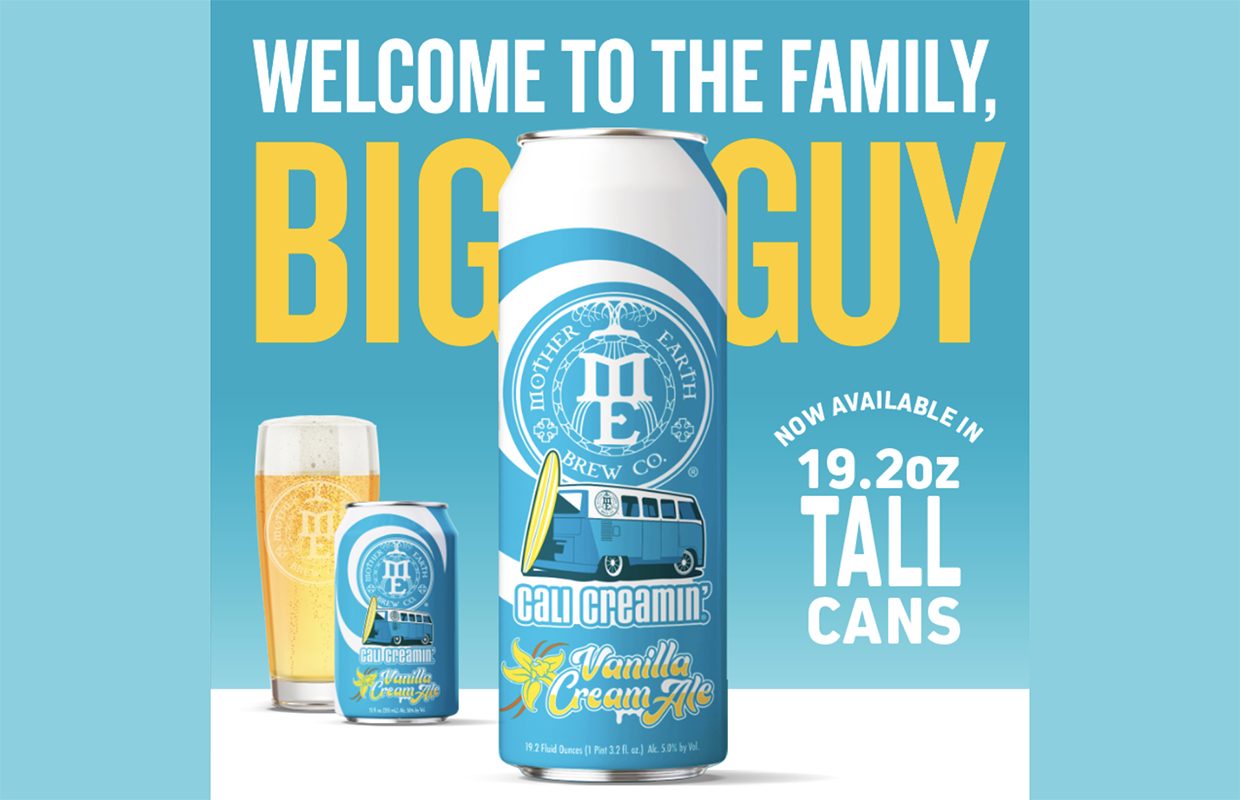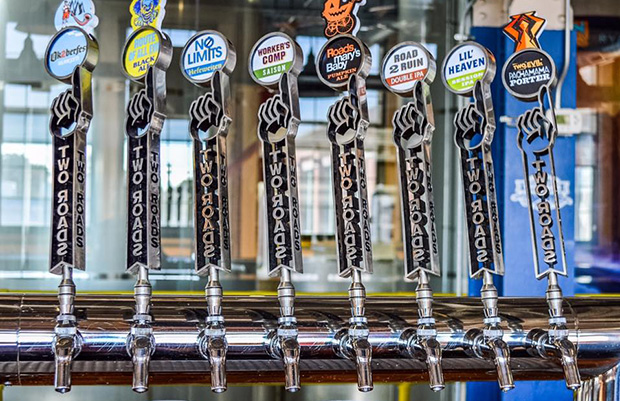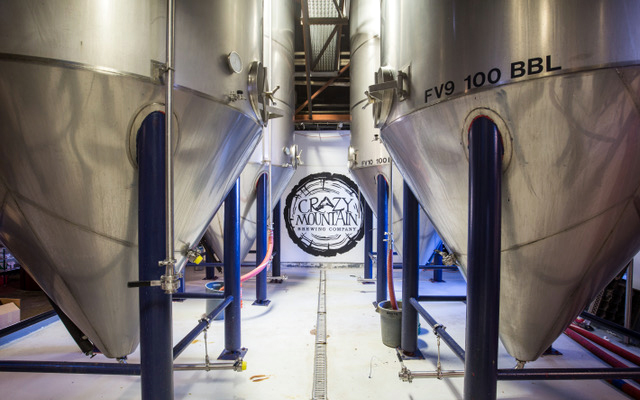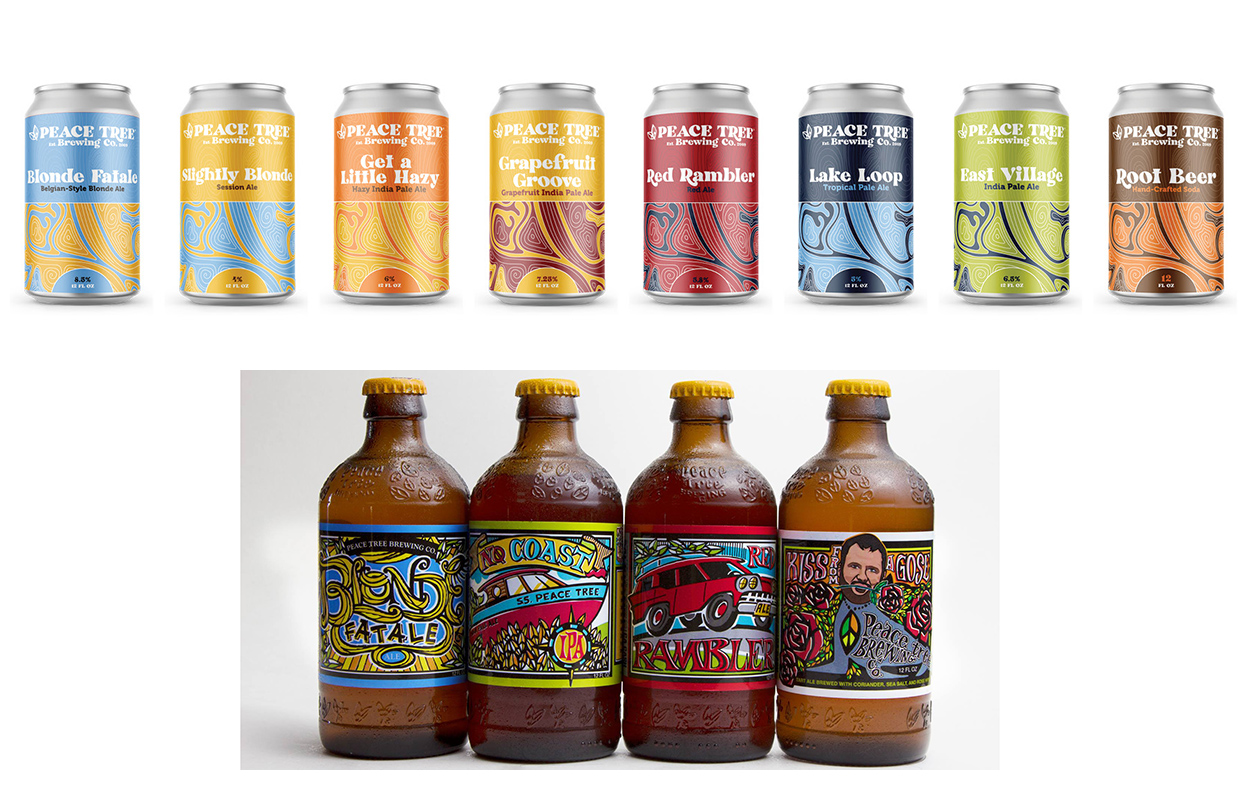
Craft beer has the reputation of being somewhat of a “luxury” product to beer drinkers explained Kamron Khannakhjavani of Mother Earth Brewing.
Finding ways to dispel that myth has led to breweries looking to find ways into more traditional avenues of retail sales and the single format 19.2-ounce cans have become favorable to many.
Khannakhjavani, the Director of Marketing and Partner for Mother Earth told Brewer that 19.2s live in a space in the beer cooler right next to macro brands, giving the California- and Idaho-produced brand the ability to place its beer adjacent to “the big boys” at a really competitive price.
“I think that will give us access to macro-consumers that shop in that part of the cooler,” he said of the announcement of the brewery’s flagship, Cali Creamin’ Vanilla Cream Ale, which is now available.
“In a highly competitive landscape, where craft brands are continually losing shelf space to macro brands and non-beer options,19.2s occupy a growing opportunity because they don’t require a lot of real estate on the shelf and they fill a void left by the exit of 22oz bombers as a single-serve option,” Khannakhjavani said.
Originally packaged in 22 oz bottles, the brewery’s Cream Ale quickly made its way into 12 oz cans, followed by a 16 oz Nitro version, and now also have cases ranging from 12 & 24-count to inclusion in a mixed flavor Cali Combo Pack.
READ MORE: The Challenges Associated With Variety Packs
“Some drinkers still want the option to purchase a beer without having to commit to a full six-pack,” Khannakhjavani said. “C-Stores are particularly well-suited for stovepipes due to their single serve, grab and go model and the fact that, although they are somewhat late to the craft game, they are expanding their craft selection.”
Because 19.2 oz cans don’t have the market penetration that 12 oz cans do, the volumes for Mother Earth will naturally be lower than its flagship 12 oz format.
“Economies of scale are a challenge anytime you launch a new product, but we are able to manage our cost of goods by working with an existing product that we already have cost control over which allows us to keep the MSRP competitive while preserving our margins,” Khannakhjavani said.
Getting this extra format for a wholesaler to work with allows them to reach new markets and audiences without having to educate the team on an entirely new product.
“Cali Creamin’ is already a brand our distributors are familiar with,” he said. “Cali Creamin’ has proven to be a legacy brand and now our distributor partners can go further with it with little additional effort. It’s a beer that has always sold itself.”
There are obviously several impacts when adding formats and Mother Earth made a sizeable investment to retrofit its canning line to facilitate 19.2s.
There are also additional considerations beyond the production components as well.
“Can sourcing for example is a challenge because you have to be able to produce enough to justify ordering a truckload of cans, so your forecasting has to be on point,” Khannakhjavani said. “Also, not all can manufacturers carry 19.2s so it involves finding the right can partner. Making all that work while also ensuring the economics work is a balancing act. It’s months and months of coordination.”






Be the first to comment